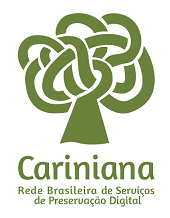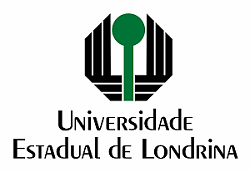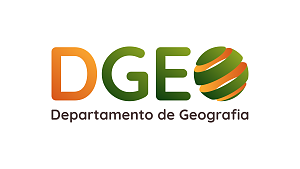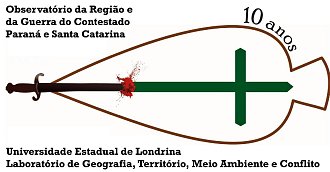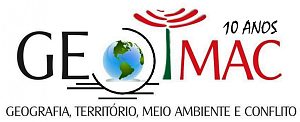Creation of tourism experiences in rural environments
analysis of typologies and their relevance
DOI:
https://doi.org/10.5433/got.2022.v8.46409Keywords:
Destination management, tourist typologies, tourism marketingAbstract
Destination management aims to create real cohesion and coexistence between the use of resources, in such a way that tourism represents a sustainable economic activity in the territory. In rural areas, the development of tourism experiences boosts the dynamisation of the economies of primary and secondary sectors, as is the case in Extremadura (Spain). By means of a case analysis, identifying and characterising the tourism experiences developed in this region, the main objective is to analyse the development of different types of tourism experiences in order to evaluate their capacity and effectiveness in terms of dynamisation in a rural environment. The results show a tendency towards specialisation in tourism sub-typologies that help to develop resources, the immersion of tourists and benefits for the local population, with a commitment to the creation of tourism experiences closely linked to tradition, society or local activity.
Downloads
References
CAMPÓN-CERRO, A. M., Di-Clemente, E., Hernández-Mogollón, J. M., & Folgado-Fernández, J. A. Healthy Water-Based Tourism Experiences: Their Contribution to Quality of Life, Satisfaction and Loyalty. International Journal of Environmental Research and Public Health, 17, 6, p. 1961, 2020.
COELHO, M. de F., Gosling, M. de S., & Almeida, A. S. A. Tourism experiences: Core processes of memorable trips. Journal of Hospitality and Tourism Management, 37, p. 11-22, 2018.
DI-CLEMENTE, E., Hernández Mogollón, J. M., & López-Guzmán, T. La gastronomía como patrimonio cultural y motor del desarrollo turístico: Un análisis DAFO para Extremadura. Tejuelo: Didáctica de La Lengua y La Literatura, 9, p. 817-833, 2014.
FOLGADO-FERNÁNDEZ, J. A., Campón-Cerro, A. M., & Hernández-Mogollón, J. M. Potential of olive oil tourism in promoting local quality food products: A case study of the region of Extremadura, Spain. Heliyon, 5, 10, 2019.
HERNÁNDEZ-MOGOLLÓN, J. M., Campón-Cerro, A. M., & García-Durán, J. M. Propuestas para el desarrollo y comercialización del turismo ornitológico en Extremadura. Cuadernos de Turismo, 28, p. 93-119, 2011.
HERNÁNDEZ-MOGOLLÓN, J. M., de Salvo, P., & Di-Clemente, E. Una aproximación al concepto de slow tourism: el caso del territorio del Valle del Jerte. Revista Turismo & Desenvolvimento, 17/18, p. 1681-1693, 2012.
HERNÁNDEZ-MOGOLLÓN, J. M., Di-Clemente, E., & Campón-Cerro, A. M. (2020). Culinary travel experiences, quality of life and loyalty. Spanish Journal of Marketing - ESIC, 24, 3, 425-446, 2020.
HERNÁNDEZ-MOGOLLÓN, J. M., Di Clemente, E., & López-Guzmán, T. El turismo gastronomico como experiencia cultural. El caso práctico de la ciudad de Cáceres. Boletín de La Asociación de Geógrafos Españoles, 68, p. 407-428, 2015.
HERNÁNDEZ-MOGOLLÓN, J. M., Folgado-Fernández, J. A., & Campón-Cerro, A. M. Eventos basados en recreaciones históricas militares como estrategia dinamizadora del turismo local: El caso de la batalla de La Albuera (España). Revista Turismo & Desenvolvimento, 27, 28, p. 1071-1082, 2017.
HERNÁNDEZ MOGOLLÓN, J. M. Turismo cultural y de naturaleza: estrategias de creación de valor en Extremadura. Puertas a La Lectura, 20-21, p. 213-234, 2008.
INSTITUTO NACIONAL DE ESTADÍSTICA. Cifras oficiales de población de los municipios españoles: Revisión del Padrón Municipal. Resultados. Padrón. Población Por Municipios, 2021. Disponible en: https://www.ine.es/dyngs/INEbase/es/operacion.htm?c=Estadistica_C&cid=1254736177011&menu=resultados&idp=1254734710990. Acceso el: 20 septiembre 2021.
JELINCIC, D. A., & Senkic, M. Creating a heritage tourism experience. The power of the senses. Etnoloska Tribina, 47, 40, p. 109-126, 2017.
JUNTA DE EXTREMADURA. Plan Turístico de Extremadura 2017-2020. Dirección General de Turismo. Consejería de Economía e Infraestructura, 2017. Disponible en: https://www.turismoextremadura.com/viajar/shared/documentacion/publicaciones/PlanTuristicoExtremadura2017_2020.pdf. Acceso el: 1 de septiembre de 2021.
JUNTA DE EXTREMADURA. Listado de Zonas de Especial Protección para las Aves (ZEPA). Extremadura Ambiente, 2021. Disponible en: http://extremambiente.juntaex.es/index.php?option=com_content&view=article&id=102. Acceso el: 1 de septiembre de 2021.
KIM, H., & Chen, J. S. Destination image formation process: A holistic model. Journal of Vacation Marketing, 22, 2, p. 154-166, 2015.
MARTÍN DELGADO, L. M., Rengifo Gallego, J. I., & Sánchez Martín, J. M. El turista cinegético. Una aproximación a su perfil en la comunidad autónoma de Extremadura. Investigaciones Turísticas, 18, p. 193-219, 2019.
MEYER, C. B. A Case in Case Study Methodology. Field Methods, 13, 4, p. 329-352, 2001.
MORENO-LOBATO, A., Di-Clemente, E., & Hernández-Mogollón, J. M. Relevance of intermediary companies for the creation of tourism experiences. the study-case of Extremadura. Journal of Tourism and Heritage Research, 4, 1, p. 98-110, 2021.
NIETO MASOT, A., & Ríos Rodríguez, N. Rural Tourism as a Development Strategy in Low-Density Areas: Case Study in Northern Extremadura (Spain). Sustainability, 13, 239, p. 1-21, 2021.
PINE, J. B., & Gilmore, J. H. Welcome to the Experience Economy. Harvard Business Review, 76, p. 97-105, 1998.
RASOOLIMANESH, S. M., Ringle, C. M., Jaafar, M., & Ramayah, T. Urban vs. rural destinations: Residents' perceptions, community participation and support for tourism development. Tourism Management, 60, 147-158, 2017.
SÁNCHEZ-MARTÍN, J.-M., Blas-Morato, R., & Rengifo-Gallego, J.-I. The Dehesas of Extremadura, Spain: A Potential for Socio-Economic Development Based on Agritourism Activities. Forests, 10, 8, 620, 2019.
SÁNCHEZ-ORO SÁNCHEZ, M., Castro-Serrano, J., & Robina-Ramírez, R. Stakeholders' participation in sustainable tourism planning for a rural region: Extremadura case study (Spain). Land, 10, 553, p. 1-19, 2021.
SHARMA, P., & Nayak, J. K. Testing the role of tourists' emotional experiences in predicting destination image, satisfaction, and behavioral intentions: A case of wellness tourism. Tourism Management Perspectives, 28, p. 41-52, 2018.
STIENMETZ, J., Kim, J., Xiang, Z., & Fesenmaier, D. R. Managing the structure of tourism experiences: Foundations for tourism design. Journal of Destination Marketing and Management, 19, 2021.
TARAZONA-VALVERDE, B. Y., Campón-Cerro, A. M., & Di-Clemente, E. Análisis de las posibilidades gastronómicas del AOVE como base para el diseño de experiencias de oleoturismo en Extremadura. ROTUR. Revista de Ocio y Turismo, 15, 2, p. 61-82, 2021.
WEILER, B., & Walker, K. Enhancing the visitor experience: Reconceptualising the tour guide's communicative role. Journal of Hospitality and Tourism Management, 21, p. 90-99, 2014.
Downloads
Published
How to Cite
Issue
Section
License
Copyright (c) 2023 Geographia Opportuno Tempore

This work is licensed under a Creative Commons Attribution-NonCommercial-NoDerivatives 4.0 International License.
Aviso de Direito Autoral Creative Commons
1. Política para Periódicos de Acesso Livre
Autores que publicam nesta revista concordam com os seguintes termos:
- Autores mantém os direitos autorais e concedem à revista o direito de primeira publicação, com o trabalho simultaneamente licenciado sob a Licença Creative Commons Attribution que permite o compartilhamento do trabalho com reconhecimento da autoria e publicação inicial nesta revista.
- Autores têm autorização para assumir contratos adicionais separadamente, para distribuição não-exclusiva da versão do trabalho publicada nesta revista (ex.: publicar em repositório institucional ou como capítulo de livro), com reconhecimento de autoria e publicação inicial nesta revista.
- Autores têm permissão e são estimulados a publicar e distribuir seu trabalho online (ex.: em repositórios institucionais ou na sua página pessoal) a qualquer ponto antes ou durante o processo editorial, já que isso pode gerar alterações produtivas, bem como aumentar o impacto e a citação do trabalho publicado (Veja O Efeito do Acesso Livre)
- Os autores cedem à Geographia Opprrtuno Tempore, direitos exclusivos de primeira publicação, com o trabalho simultaneamente licenciado sob a Licença Atribuição-NãoComercial-
CompartilhaIgual 4.0 Internacional. Esta licença permite que terceiros façam download e compartilhem os trabalhos em qualquer meio ou formato, desde que atribuam o devido crédito de autoria, mas sem que possam alterá-los de nenhuma forma ou utilizá-los para fins comerciais. Se você remixar, transformar ou desenvolver o material, não poderá distribuir o material modificado






